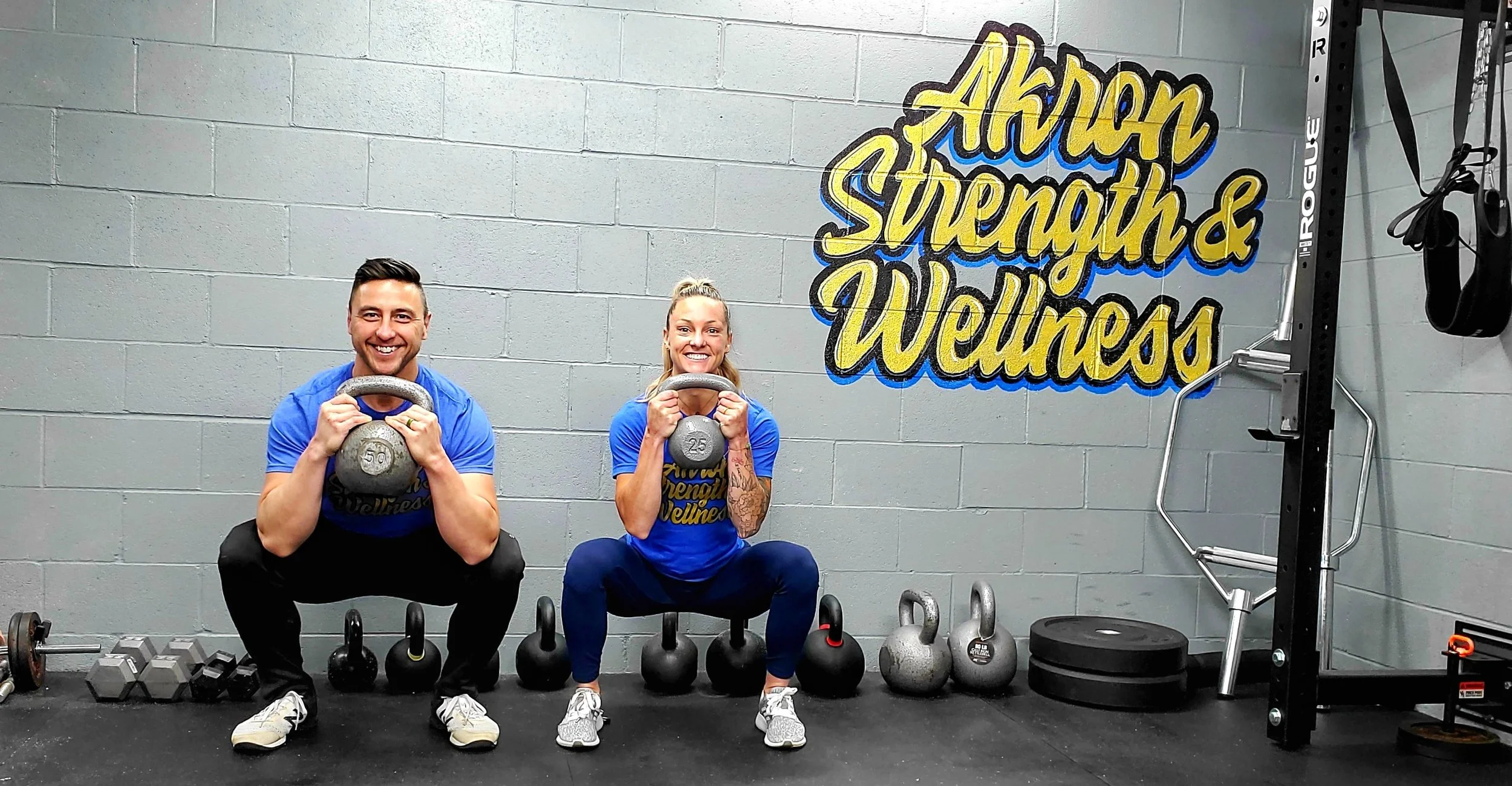Week Five -
Fruits & Vegetables :
Fueling your body from the produce section
Module 5-A: Intro to Week 5
Module 5-B: Don’t like Vegetables? Here's how to learn to enjoy them (and Fruit too!)

Week Five -
Smart carbs for your brain and body!
-
"We should all be eating fruits and vegetables as if our lives depend on it - because they do." - Dr. Michael Greger
Have you ever heard or said any of the following statements:
“Carbohydrates are bad!”
“Carbs will make you fat.”
“Carbs will prevent you from losing weight.”
It’s a very common theme in current “diet culture” to believe that carbs are the enemy of fat loss. On the contrary, carbohydrates are an important part of a balanced, healthy diet.
In his book, “Bigger Leaner Stronger”, author Michael Matthews lists multiple studies from highly esteemed colleges and universities that have discovered there is no difference in weight loss between someone who eats higher carbs versus lower carbs. Matthews states, “no individual food can make you fatter, only overeating can.”
Carbohydrates fuel the body with glucose, which is converted to energy. This particular energy supports bodily functions and physical activity. Carbohydrates give your body energy - let that sink in! If you’ve ever gone on a “low-carb” diet, then maybe you’re familiar with the fatigue that follows. That feeling that you didn’t get enough sleep, or just feeling weak and sluggish during the day and especially during workouts.
There are better carbs than others, however. The better, smarter, or healthier carbs are unprocessed or very minimally processed whole grains, vegetables, fruits, and beans.
On the other hand, there are unhealthier carbs. These are usually highly processed and include white bread, pastries, sodas, candy, and many other foods that you will find in a wrapper. These processed carbs spike your blood sugar quickly and then leave you feeling drained or even wanting more. Less healthy carbs are literally processed in labs and filled with elements that trigger your brain to keep you wanting more. Have you ever eaten just one peanut butter M&M or just one bite of ice cream and been left feeling satisfied?
Eating smart carbs involves incorporating whole grains, vegetables and fruits into your plan which will promote good health by delivering vitamins, minerals, fiber, and a host of important phytonutrients.
Carbohydrate recommendations:
Precision Nutrition recommends the average person consume around 130 grams of carbohydrates per day with about 25 grams of fiber. Anyone that tracks their food through MyfitnessPal or another app and focuses on balanced macros (protein, carbs, fats) carb intake may be a percentage of your caloric intake that you focus on. For example, someone who is recommended to eat around 1,600 calories per day and 20% of those calories coming from carbohydrates, their carbohydrate intake would be set for around 80 grams per day. Every person’s goal will be different, but again, “no individual food can make you fatter, only overeating can.”
A general recommendation is to aim for 2 ½ cups of vegetables for women and 3 cups for men daily. To give you a visual, 5-6 broccoli florets or 1 bell pepper or 1 medium potato = 1 cup.
How to flavor up your vegetables:
If adding more vegetables into your diet is new, flavor them up with your favorite spice or seasoning. A great way to do this is to place steamed vegetables on a sheet pan, sprinkle with any seasoning (salt, pepper, everything bagel seasoning, ranch seasoning, garlic powder, etc.) and roast in the oven for 10-15 minutes or even longer if desired. Try pan-frying some vegetables with 1 tablespoon of extra virgin olive oil and seasonings for a delicious flavor with all the nutrients. Another tip would be to add vegetables to any crock pot baking dish as this helps break down the vegetables while still giving you all the nutrients.
To list only a few excellent vegetable options:
Spinach
Kale
Broccoli
Brussel sprouts
Cabbage
Asparagus
Carrots
Onions
Peppers
Sweet potatoes
White potatoes
Cabbage
Cauliflower
Fennel
Green beans
Squash
Don’t be afraid to experiment with vegetables and flavoring them up to your liking.
More smart carbs:
Not only are vegetables smart carbs and great for you nutritionally, but fruits are also going to supplement your health with vitamins and minerals and provide your body with excellent energy. The general recommendation for fruits daily is around 2 cups per day.
To list only a few excellent fruits:
Apples
Strawberries
Blueberries
Oranges
Mangos
Peaches
Apricots
Nectarines
Bananas
Cherries
Cantaloupe
Avocado
Additionally, whole grains are a great source of carbohydrates that are going to fuel your body with energy and nutrients. They are a great source of fiber and other important nutrients, such as B vitamins, iron, folate, selenium, potassium and magnesium.
To list only a few excellent whole grains:
Bulgar
Brown Rice
Oats (old fashioned or steel-cut)
Corn
Quinoa
This week, the focus is on your smart carbs.
Take note of which carb sources you are currently consuming on a regular basis.
Questions to ask yourself:
-Are these providing you fuel and energy or are they leaving you feeling less than good?
-What meal(s) can you add in a serving of vegetables?
-What vegetable can I try a new way of preparing this week?
-What smart carb from the list (vegetables, fruits, or whole grains) that you haven’t tried can you try this week?

